“Which makes his good manners the more valuable. The older a person grows, Harriet, the more important it is that their manners should not be bad. What is passable in youth is detestable in later age. Mr. Martin is now awkward and abrupt; what will he be at Mr. Weston’s time of life?”
“There is no saying, indeed,” replied Harriet rather solemnly.
“But there may be pretty good guessing. He will be a completely gross, vulgar farmer, totally inattentive to appearances, and thinking of nothing but profit and loss.”
“Will he, indeed? That will be very bad.”
“I think his being illiterate and coarse need not disturb us. But, perhaps, Mr. Elton’s manners are superior to Mr. Knightley’s or Mr. Weston’s. They have more gentleness. There is an openness, a quickness, almost a bluntness in Mr. Weston, which everybody likes in him. I think a young man might be very safely recommended to take Mr. Elton as a model. Mr. Elton is good-humoured, cheerful, obliging, and gentle. It strikes me that his manners are softer than they used to be. If he means anything, it must be to please you. Did not I tell you what he said of you the other day?”
She then repeated some warm personal praise which she had drawn from Mr. Elton; and Harriet blushed and smiled, and said she had always thought Mr. Elton very agreeable.
Emma thought that Mr. Elton was the very person for driving the young farmer out of Harriet’s head. She thought it would be an excellent match – desirable, natural, and probable. The longer she considered it, the greater was her sense of its expediency. Mr. Elton’s situation was most suitable, quite the gentleman himself, and without low connexions. He had a comfortable home for her, and Emma imagined a very sufficient income; for though the vicarage of Highbury was not large, he was known to have some independent property; and she thought very highly of him as a good-humoured, well-meaning, respectable young man, without any deficiency of useful understanding or knowledge of the world.
“I do not know what your opinion may be, Mrs. Weston,” said Mr. Knightley, “of this great intimacy between Emma and Harriet Smith, but I think it a bad thing.”
“A bad thing! Do you really think it a bad thing? – why so?”
“I think they will neither of them do the other any good.”
“You surprize me! Emma must do Harriet good, Harriet may be said to do Emma good. I have been seeing their intimacy with the greatest pleasure. This will certainly be the beginning of one of our quarrels about Emma, Mr. Knightley.”
“Perhaps you think I am come on purpose to quarrel with you.”
“Mr. Weston would undoubtedly support me, if he were here. We were speaking of it only yesterday, and agreeing how fortunate it was for Emma, that there should be such a girl in Highbury for her to associate with. Mr. Knightley, you are so much used to live alone, that you do not know the value of a companion. I can imagine your objection to Harriet Smith. She is not the superior young woman which Emma’s friend ought to be. But on the other hand, Emma will undoubtedly read more. They will read together, I know.”
“Emma has been meaning to read more ever since she was twelve years old. So what? You never could persuade her to read half so much as you wished. You know you could not.”
“I dare say,” replied Mrs. Weston, smiling, “since we have parted, I can never remember Emma’s omitting to do anything I wished.”
“Emma is spoiled by being the cleverest of her family. At ten years old, she had the misfortune of being able to answer questions which puzzled her sister at seventeen. She was always quick and assured: Isabella slow and diffident. And ever since she was twelve, Emma has been mistress of the house. She inherits her mother’s talents.”
“I should have been sorry, Mr. Knightley, to be dependent on your recommendation, had I quitted Mr. Woodhouse’s family and wanted another situation; I do not think you would have spoken a good word for me to anybody. I am sure you always thought me unfit for the office I held [36] for the office I held – для своей должности
.”
“Yes,” said he, smiling. “You are better placed here; very fit for a wife, but not at all for a governess. But you were preparing yourself to be an excellent wife all the time you were at Hartfield. You might not give Emma such a complete education as your powers would seem to promise; but you were receiving a very good education from her; and if Weston had asked me to recommend him a wife, I should certainly have named Miss Taylor.”
“Thank you. There will be very little merit in making a good wife to such a man as Mr. Weston.”
“But about Harriet Smith. I think her the very worst sort of companion that Emma could possibly have. She knows nothing herself, and looks upon Emma as knowing everything. She is a flatterer. Her ignorance is flattery. And as for Harriet, I will venture to say that she cannot gain by the acquaintance. She will grow just refined enough to be uncomfortable with those among whom birth and circumstances have placed her home.”
“Mr. Knightley, with all dear Emma’s little faults, she is an excellent creature. Where shall we see a better daughter, or a kinder sister, or a truer friend? No, no; she has qualities which may be trusted; she will never lead anyone really wrong.”
“Very well; I will not plague you any more. Emma shall be an angel.”
“I know that you all love her really too well to be unjust or unkind; but excuse me, Mr. Knightley, if I take the liberty of hinting, it’s better not to speak about Harriet Smith’s intimacy.”
“Yes, of course, it is very good advice, but I have a very sincere interest in Emma. There is an anxiety, a curiosity in what one feels for Emma. I wonder what will become of her!”
“So do I,” said Mrs. Weston gently, “very much.”
“She always declares she will never marry, which, of course, means just nothing at all. But I have no idea that she has yet ever seen a man she cared for. It would not be a bad thing for her to be very much in love with a proper man. I should like to see Emma in love, and it would do her good. But there is nobody hereabouts to attach her; and she goes so seldom from home.”
Emma was quite convinced of Mr. Elton’s being in the fairest way of falling in love, if not in love already. He talked of Harriet, and praised her warmly. His perception of the striking improvement of Harriet’s manner, since her introduction at Hartfield, was one of the proofs of his growing attachment.
“You have given Miss Smith all that she required,” said he; “you have made her graceful and easy. She was a beautiful creature when she came to you, but, in my opinion, the attractions you have added are infinitely superior to what she received from nature.”
“I am glad you think I have been useful to her; but Harriet had all the natural grace of sweetness of temper and artlessness in herself. I have done very little. I have perhaps given her a little more decision of character.”
“Exactly so; so much superadded decision of character!”
Emma was not less pleased another day with the manner in which he seconded a sudden wish of hers, to have Harriet’s picture.
“Did you ever sit for your picture, Harriet?” said she.
“Oh! dear, no, never,” answered Harriet. “Why should my picture be drawn?”
No sooner was she out of sight, than Emma exclaimed,
“What an excellent picture of her would be! I would give any money for it. You do not know it I dare say, but two or three years ago I had a great passion for painting. And I could almost venture, if Harriet would sit to me. It would be such a delight to have her picture!”
Читать дальше
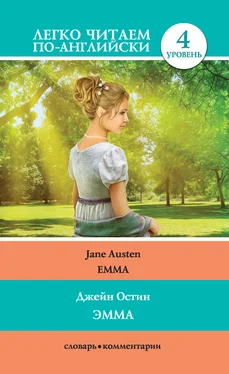
![Джейн Остин - Sense and Sensibility [С англо-русским словарем]](/books/26612/dzhejn-ostin-sense-and-sensibility-s-anglo-thumb.webp)
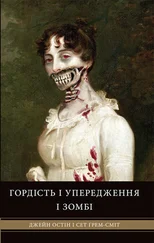

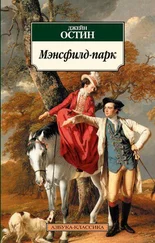


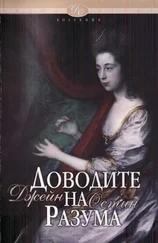
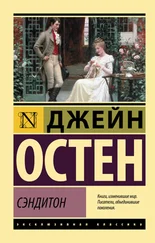
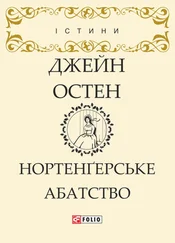
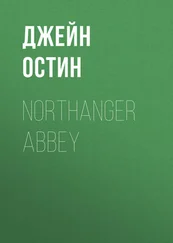
![Джейн Остин - Love and Freindship [sic]](/books/748741/dzhejn-ostin-love-and-freindship-sic-thumb.webp)